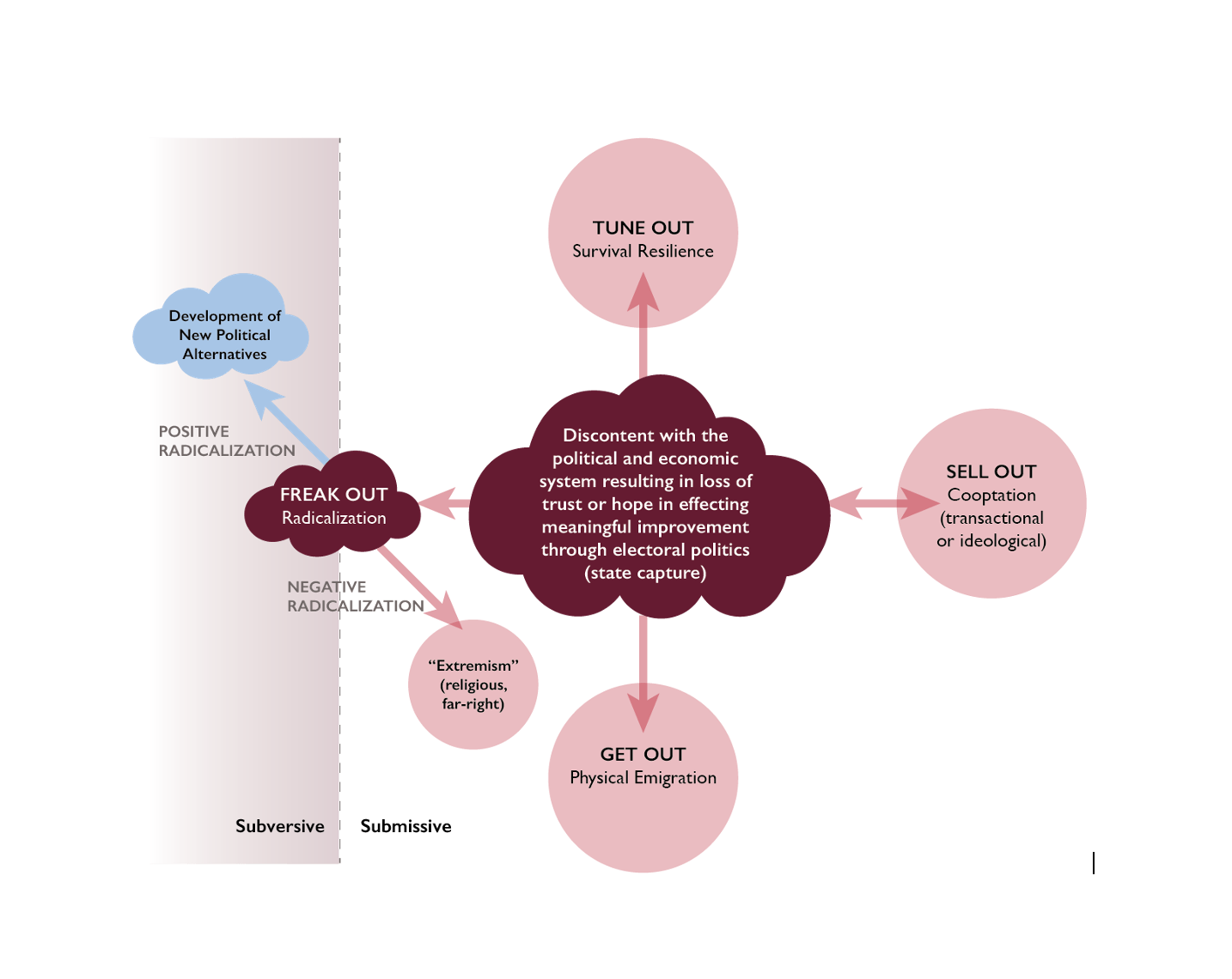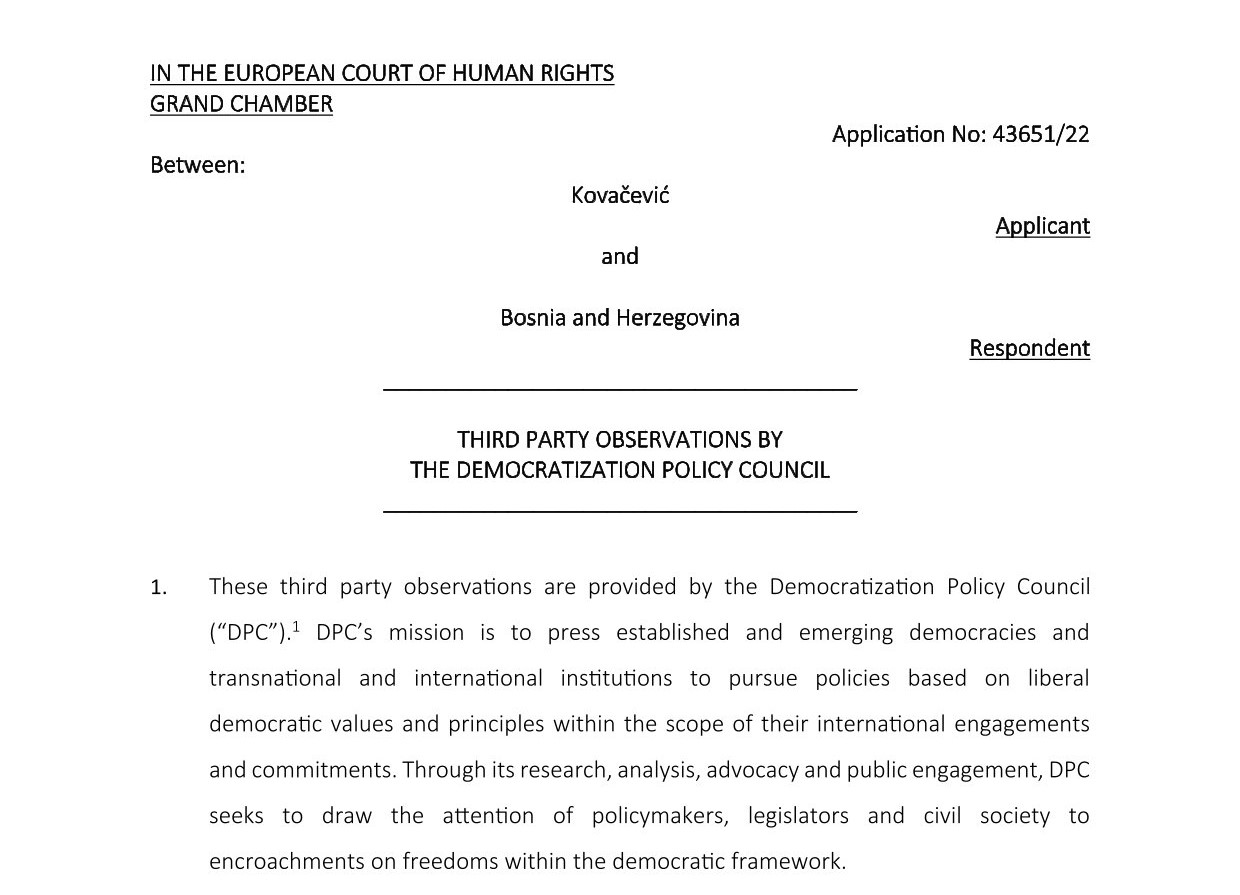Latest blog post
European Defense and Democracy in the Trump Era… Demands a Policy Recalibration for the Western Balkans
NB: This blog post is the second in a series by DPC reflecting on the impact of the tectonic shift wrought by Trump’s dramatic breach of hitherto fundamental tenets of American foreign policy, such as what has often been termed “the rules-based international order,” the transatlantic alliance, democracy support, and humanitarian and development assistance. This radical change of direction correlates with Trump’s personalization and concentration of power, allied with “tech bros” and […]
Our Mission
DPC’s mission is to press established and emerging democracies and transnational and international institutions to pursue policies based on liberal democratic values and principles within the scope of their international engagements and commitments. Through its research, analysis, advocacy and public engagement, DPC seeks to draw the attention of policymakers, legislators and civil society to encroachments on freedoms within the democratic framework.
News
Senior Associate Valery Perry to appear at US Congress’ Helsinki Committee hearing on May 25
Dr. Valery Perry will appear along with three other witnesses at 2pm Eastern Daylight Time on Wednesday, May 25 at the Capitol Visitor Center, Room 212-10. The event will be webcast live at: www.youtube.com/HelsinkiCommission Dr. Perry’s written testimony is linked HERE She was interviewed after the hearing on VOA’s Bosnian service, beginning[…]
Democratization, Authoritarianism, and Radicalization – Exploring the Connections
DPC Senior Associate Kurt Bassuener participated in the Center for the Study of Islam and Democracy’s 17th annual conference, entitled “Democratization, Authoritarianism, and Radicalization – Exploring the Connections”, held in Washington, D.C. on April 21st. A full program for the event is linked here: 17th Annual Conference | CSID
21st Annual ASN World Convention
DPC Senior Associate Valery Perry, together with Soeren Keil of Canterbury Christ Church University, co-chaired two panels at the annual conference of the Association for the Study of Nationalities on the topic of “The Business of State Capture in the Western Balkans”, April 14-16, 2016. Too see more about the[…]
Letter to the Editor in The Economist
Valery Perry responds to an article on an increase in Arab investment in and around Sarajevo, noting the lack of transparency and accountability in recent foreign investments. To read the full letter, visit: http://www.economist.com/news/letters/21692846-letters-editor
DPC Advance Preview of the 2015 EC Progress Report for Bosnia and Herzegovina
DPC Policy Note New Series #11 By Patrick Dick Introduction Later this month, the European Commission is scheduled to publish its 2015 Progress Report for Bosnia and Herzegovina (BiH), a document that purports to be the EU’s annual manifesto of priorities for the country. Like its predecessors of the last[…]
Senior Associate Toby Vogel interview in Tanjug on Serbia’s early parliamentary elections
In his interview in Tanjug, DPC Senior Associate and co-founder Toby Vogel states that early elections could strengthen Prime Minister Aleksandar Vučić’s mandate for the painful reforms required to accelerate the path to EU membership. He cautions these include not only considerable economic restructuring, but also development of normalized relations[…]
Study: State Capture in the Western Balkans
The Democratization Policy Council and Eurothink are pleased to share our report, Sell Out, Tune Out, Get Out, or Freak Out? Understanding Corruption, State Capture, Radicalization, Pacification, Resilience, and Emigration in Bosnia and Herzegovina and North Macedonia. The full volume is available, and also a stand-alone Executive Summary and Recommendations.
This report was based on field work in 2020 with over 200 people, beginning just before the pandemic, and in the summer after the strict lockdowns lifted. Extensive media reviews were conducted for each country, and an online poll. In light of the difficulty in doing field work during COVID-19, this report provides an important overview of the situation in the two countries, from the ground up.
This report is a hybrid: Grounded in academic questions and literature, it strongly reflects the voices of ordinary people in localities that are often ignored in political discussions. In addition to the presentation of data, a set of 18 community snapshots is included to provide a deeper look at the lived impact of a generation of upheaval and stagnation. It also seeks to contribute to theory-building and in turn policy-making, as the issues of polarization, corruption, migration, opportunity, dignity, solidarity and vision were themes encountered and synthesized.
The DPC and Eurothink teams hope that this work will contribute to discussions on all of the themes explored. Most importantly, the report is a reminder of the impact on communities and on people of the radical social changes of the past three decades – changes to which consolidated democracies are themselves not immune.





